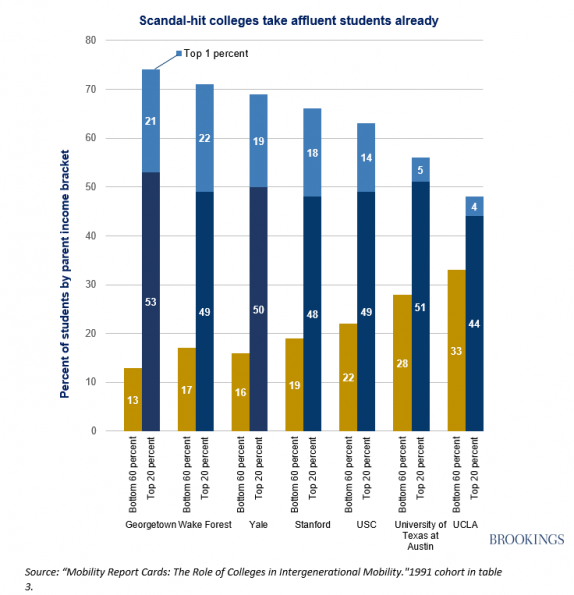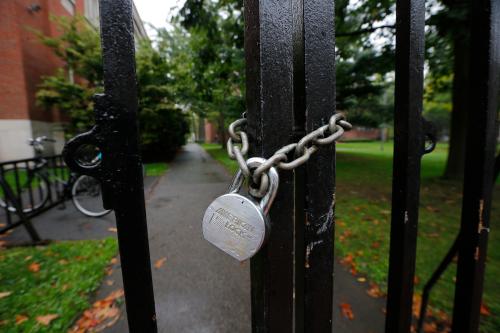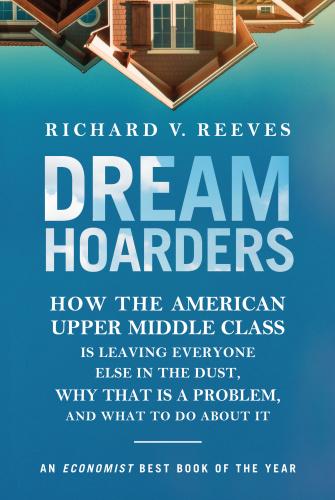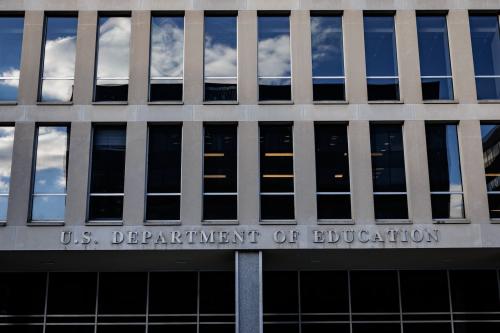The accused parties in the college admissions corruption case are the parents who offered bribes and the coaches or other staff who took them – as well as the man at the center of the ring, William “Rick” Singer, the founder of a for-profit “college preparation business” based in Newport Beach, California. But the colleges who were duped need to take a hard look at their admissions philosophy. All the elements of a great story are here: an FBI sting operation, some celebrities (Lori Loughlin, Felicity Huffman) and business tycoons (casino mogul Gamal Aziz), a series of coaches receiving bribes, photoshopped picture of athletes, fake SAT scores…and lots and lots of money ($25 million in total). There is much to be said about all this, not least how the scheme simply shines a light on how the whole college admissions game is rigged in favor of those with cash, connections, or both. (See my piece on this, “Dream stealers: How entrance into elite US colleges is rigged in every way.”) The colleges at which the places were bought are already very skewed in terms of their student body. They all take many more students from households in the top 20% of the income distribution than the bottom 60%. Many take more from just the top 1% than the bottom 60%:  The danger is that this story is just a passing how-could-they-shock-horror media moment. What it ought to be is a wakeup call about the whole philosophy of college admissions, especially into our most prestigious sites of higher education. For many middle-class Americans, this scandal will simply reinforce the sense that these colleges are not for people like them, but for those with the money to make big donations, with the contacts to pull strings, or the gall to simply cheat their way in. There is nothing wrong with the idea of elite colleges, if by that we mean ones that take the very best of each generation (which means taking into account family and education background) and preparing them for the future. But there is something very wrong with the idea of elite colleges, if by that we mean ones that educate the offspring of today’s elite. And to add insult to injury, the bribes were described as charitable donations. Why? Surely you know. So the parents could claim them on their taxes.
The danger is that this story is just a passing how-could-they-shock-horror media moment. What it ought to be is a wakeup call about the whole philosophy of college admissions, especially into our most prestigious sites of higher education. For many middle-class Americans, this scandal will simply reinforce the sense that these colleges are not for people like them, but for those with the money to make big donations, with the contacts to pull strings, or the gall to simply cheat their way in. There is nothing wrong with the idea of elite colleges, if by that we mean ones that take the very best of each generation (which means taking into account family and education background) and preparing them for the future. But there is something very wrong with the idea of elite colleges, if by that we mean ones that educate the offspring of today’s elite. And to add insult to injury, the bribes were described as charitable donations. Why? Surely you know. So the parents could claim them on their taxes.
The Brookings Institution is committed to quality, independence, and impact.
We are supported by a diverse array of funders. In line with our values and policies, each Brookings publication represents the sole views of its author(s).







Commentary
Colleges caught up in admissions corruption are elite already
March 14, 2019